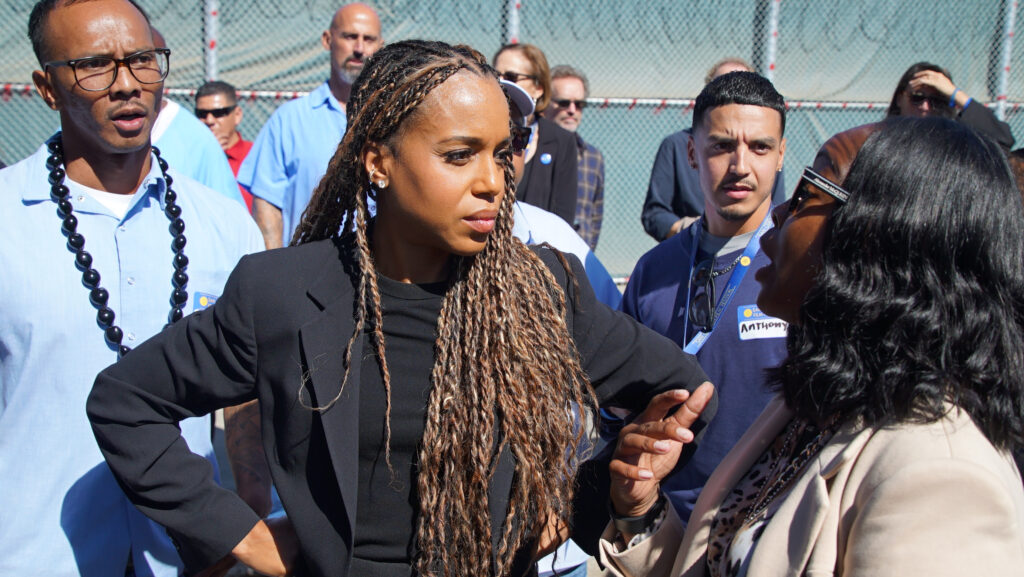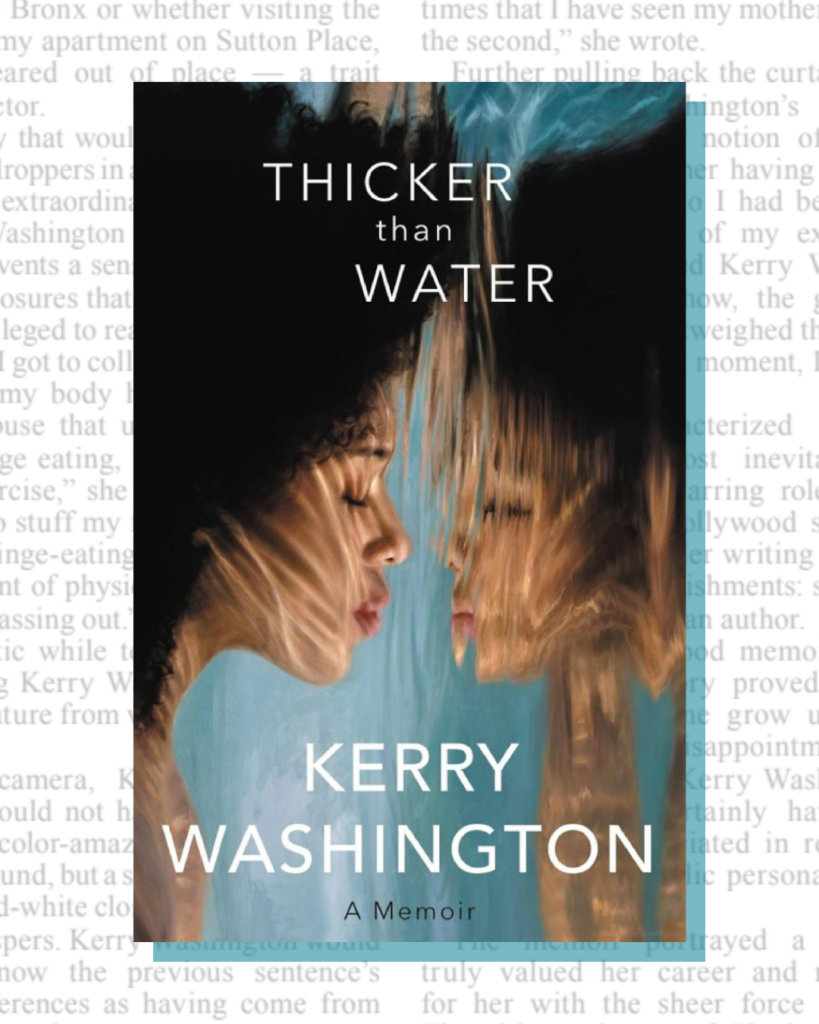Kerry Washington’s memoir reveals complications from childhood to Hollywood

My first acquaintance with Kerry Washington happened almost three decades ago. In the mid-1990s, my goddaughter borrowed my New York City apartment to hold a party for her classmates from the Spence School. She invited a dozen of them, including Kerry Washington.
Every party guest referred to Kerry Washington by both of her names as if by custom (a practice continued in this review). As these high school students circulated in my living room, Kerry Washington and her very gracious and inseparable friend Yvette distinguished themselves. Amazingly, Kerry Washington knew the names of all the painters whose art hung on my walls.
Barely five feet tall back then, she commented on the paintings with expertise that 15-or-16-year-olds rarely possessed. She acted (but did not look) older than her age, able to hold a sophisticated conversation with me, about twice her age. Her opinions on art had left a lasting impression on me.
The second day of the San Quentin Film Festival marked the second time that Kerry Washington occupied the same room with me. Her visit prompted me to look for Thicker Than Water: A Memoir a few days later. The book detailed some of her high school partying in which she had posed as a grown-up, mentioning Soul Kitchen, a well-known NYC party venue.
At San Quentin, Kerry Washington again displayed her unique gift of blending in — she did not look like a gawking tourist, but like an empathetic person who understood that life-reversals could happen. Whether telling readers about walking in the gritty neighborhood of her home in the Bronx or whether visiting the refined area of my apartment on Sutton Place, she never appeared out of place — a trait perfect for an actor.
Told in a way that would make readers feel more like eavesdroppers in a therapy session, the memoir showed extraordinary directness. As an author, Kerry Washington has a way of giving even ordinary events a sense of confidentiality, the kind of disclosures that might make readers feel almost privileged to read them.
“By the time I got to college, my relationship with food and my body had become a toxic cycle of self-abuse that utilized the tools of starvations, binge eating, body obsession and compulsive exercise,” she wrote. “I would — when seeking to stuff my feelings — stuff my face, secretly binge-eating for days at a time, often to the point of physical pain, sometimes to the point of passing out.” Her honesty would disarm any critic while teaching life-lessons and establishing Kerry Washington as firmly in charge of a future from which her past could not distract.
If told on camera, Kerry Washington’s plain diction would not have Lara Mizrack’s glorious-Technicolor-amazing-Cinemascope-stereophonic-sound, but a series of long takes of grainy black-and-white close-ups accompanied by discreet whispers. Kerry Washington would immediately know the previous sentence’s Cole Porter references as having come from her former Spence classmate.
Kerry Washington freely discussed having had panic attacks as a 7-year-old. One description of coping with such an attack during a parental argument deserved highest praise. “I can count on one hand the number of times that I have seen my mother cry. This was the second,” she wrote.
Further pulling back the curtains on family secrets, Kerry Washington’s book pointed out her complicated notion of identity and admitted to her mother having used a sperm donor. “I am not who I had been told I was from the beginning of my existence.” The passage then revealed Kerry Washington as an optimist: “Somehow, the gift of finally knowing the truth outweighed the pain of what the truth was. At that moment, I was liberated by the revelation.”
The book characterized her rise in Hollywood as almost inevitable, whether talking about her starring roles in Scandal or her work with Hollywood superstars like Quentin Tarantino. Her writing style stood on par with her accomplishments: she might very well have a future as an author.
As many Hollywood memoirs have done in the past, her story proved that nothing would make someone grow up faster than the reversals and disappointments of show biz. Hollywood, as Kerry Washington wrote about it, would certainly have comprised the ideas now associated in readers’ minds with developing public personas, rather than developed ones.The memoir portrayed a woman who truly valued her career and made it work for her with the sheer force of willpower. The ultimate lesson of Thicker Than Water: Success consistsed in valuing hard work — and brutal honesty.
